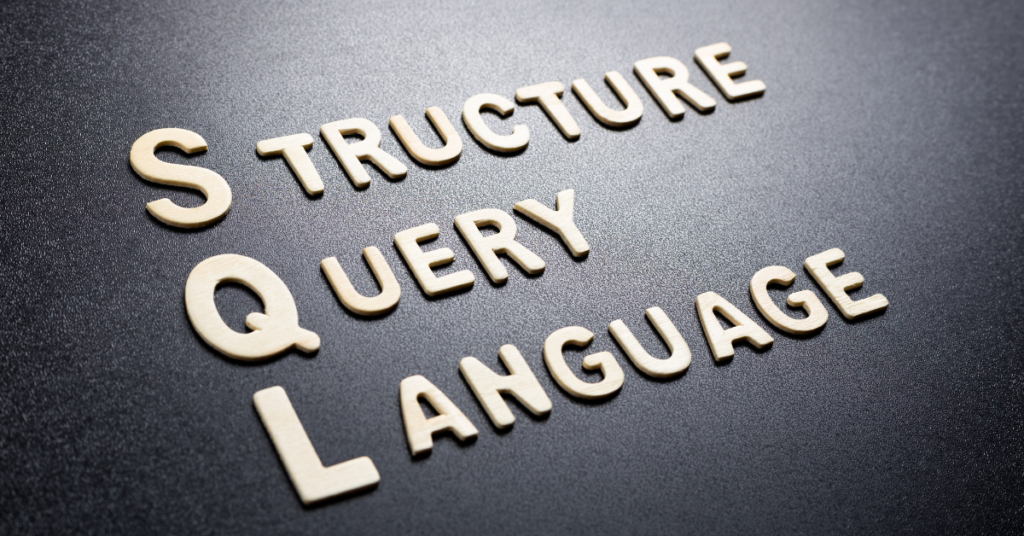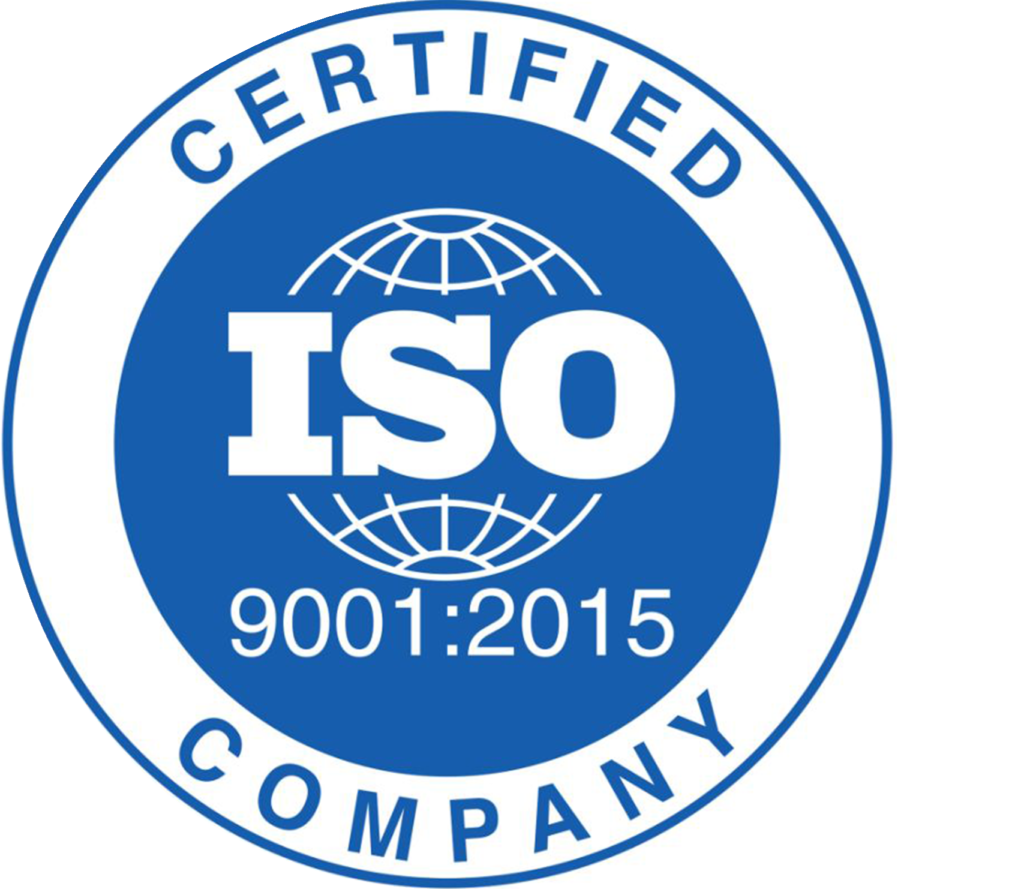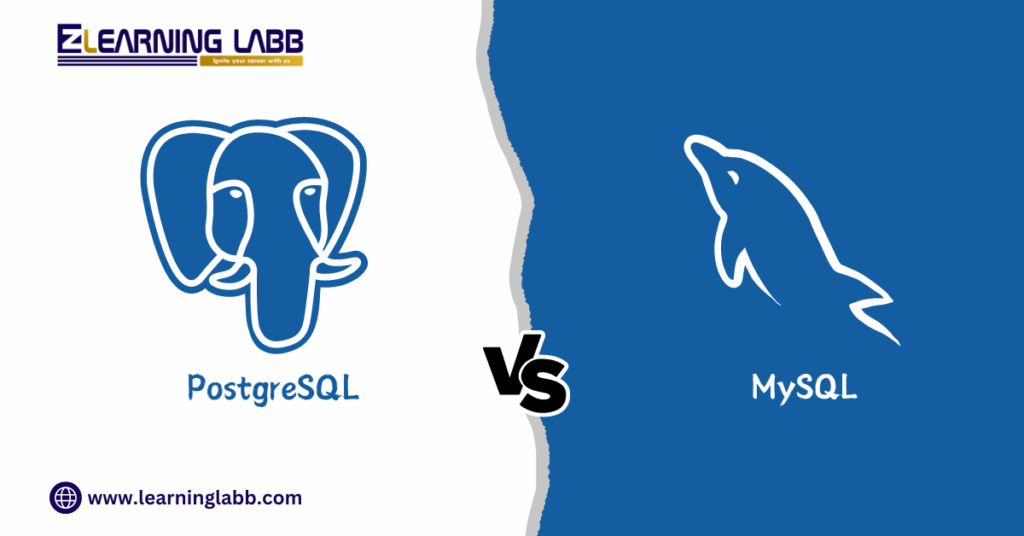What are the key differences between PostgreSQL and MySQL: Choosing the right database management system (DBMS) is a critical decision for any project. PostgreSQL and MySQL are two of the most popular open-source relational database management systems (RDBMS) available today. Each has its strengths and weaknesses that cater to different needs and preferences.
This article contains the following:
- What are the key differences between PostgreSQL and MySQL
- PostgreSQL vs MySQL for small projects
- PostgreSQL vs MySQL performance
- PostgreSQL vs MySQL scalability
- PostgreSQL vs MySQL features
What Are The Key Differences Between PostgreSQL And MySQL?
Before we get to know what are the key differences between PostgreSQL and MySQL, let’s quickly explore the definitions of PostgreSQL and MySQL.
What is PostgreSQL?
PostgreSQL is an efficient, open-source object-relational database management system (RDBMS). It is known for its reliability, robustness, and extensive feature set, making it a popular choice for a wide range of applications from small projects to large-scale enterprise systems.
PostgreSQL’s combination of features, reliability, and scalability makes it suitable for a wide range of applications including web applications, data warehousing, geospatial applications, and more demanding enterprise-level environments.
What is MySQL?
Like PostgreSQL, MySQL is an open-source relational database management system (RDBMS) that is widely used for managing structured data. Developed by Oracle Corporation, MySQL is known for its reliability, ease of use, and wide adoption across various applications, from small-scale projects to large-scale enterprises.
MySQL’s combination of features, performance, scalability, and ease of use has made it a popular choice for businesses of all sizes, ranging from startups to large enterprises.
Now that we are done with the pleasantries, let’s get to business.

What Are The Key Differences Between PostgreSQL And MySQL?
Here are PostgreSQL vs MySQL features:
| Features | PostgreSQL | MySQL |
| SQL Compliance | Strict adherence to SQL standards supports advanced SQL features. | Focus on ease of use and performance, may vary in SQL feature support. |
| Data Types | Rich set of built-in and user-defined data types including arrays, JSON, XML. | Standard data types, and basic JSON support (improved in recent versions). |
| Extensibility | Supports custom data types, functions, and procedural languages. | Allows user-defined functions and stored procedures but is less extensible. |
| Performance | Handles complex queries and large datasets well. Uses MVCC for concurrency. | Known for fast read operations, efficient in read-heavy workloads. |
| Scalability | Supports horizontal scaling with tools like Citus. | Horizontal scaling through clustering and replication. |
| Replication | Offers asynchronous and synchronous replication options. | Robust replication features, strong in high availability setups. |
| Indexing | Sophisticated indexing techniques (B-tree, Hash, GIN, GiST, SP-GiST). | Efficient indexing mechanisms (B-tree, hash indexes). |
| Geospatial Support | Advanced support for geospatial data types and GIS functionalities. | Basic geospatial support, improvements in recent versions. |
| Community Support | Strong and active open-source community. | Large community with extensive resources and support. |
| Use Cases | Ideal for applications requiring complex queries, ACID compliance. | Suitable for web applications, CMS, and environments prioritizing speed. |
PostgreSQL vs MySQL for Small Projects
| Features | PostgreSQL | MySQL |
| Ease of Use | Has a steeper learning curve due to its feature richness. | Easier to set up and use, particularly for beginners. |
| Community Support | Strong community support with extensive documentation and resources. | Large community with abundant online resources and user forums. |
| Performance | Handles complex queries and large datasets well, suitable for diverse workloads. | Known for fast read operations, efficient in read-heavy scenarios. |
| Scalability | Offers robust scaling options including horizontal scaling with tools like Citus. | Supports horizontal scaling through clustering and replication features. |
| Features | Rich feature set including advanced SQL support, data types, and indexing. | Basic to intermediate feature set suitable for most small project needs. |
| Suitability | Ideal for projects needing complex queries, data integrity, and robust features. | Great for web applications, CMS, and projects where simplicity is valued. |
For small projects, the choice between PostgreSQL and MySQL depends largely on the specific needs of the project and the experience level of the development team. PostgreSQL offers a more robust feature set and ACID compliance, making it suitable for projects that anticipate growth or require complex data handling.
Moreover, MySQL’s simplicity and performance in read-heavy (high volume) operations make it an excellent choice for smaller projects where rapid development and deployment are key considerations.
PostgreSQL vs MySQL Performance
| Feature | PostgreSQL | MySQL |
| Complex Queries | Excels in handling complex queries due to its advanced query optimizer. | Efficient in read-heavy workloads with optimized caching mechanisms. |
| Concurrency | Uses MVCC (Multi-Version Concurrency Control) for managing concurrent transactions effectively. | Optimized for high-speed reads but may face challenges with high concurrency. |
| Indexing | Supports sophisticated indexing techniques (B-tree, Hash, GIN, GiST, SP-GiST) for optimizing query performance. | Efficient indexing (B-tree, hash indexes) but may require more manual tuning. |
| Locking Mechanisms | MVCC reduces contention by allowing readers to access data without locking, enhancing concurrency. | Supports various locking mechanisms, simpler than MVCC but less concurrent. |
| Horizontal Scaling | Can scale horizontally with tools like Citus extension for distributed database environments. | Supports horizontal scaling through clustering and replication solutions. |
| Vertical Scaling | Handles vertical scaling well but may require careful configuration for optimal performance. | Efficient vertical scaling capabilities with proper tuning. |
| Storage Engines | Offers flexibility with storage engines, including the default robust InnoDB engine. | Supports multiple storage engines, each optimized for different use cases. |
The performance comparison between PostgreSQL and MySQL depends heavily on the specific workload, concurrency requirements, and scalability needs of the application. PostgreSQL excels in handling complex queries and transactional integrity, making it suitable for applications requiring robustness and advanced SQL features. MySQL, on the other hand, is often favored for its efficiency in read-heavy environments and ease of scaling through replication and clustering.
Choosing between PostgreSQL and MySQL for performance requires careful consideration of these factors in relation to your application’s specific requirements.

PostgreSQL vs MySQL Scalability
| Feature | PostgreSQL | MySQL |
| Horizontal Scaling | Supports horizontal scaling through tools like Citus extension for distributed database environments. | Supports horizontal scaling through clustering, replication, and sharding. |
| Vertical Scaling | Can scale vertically by adding more resources (CPU, RAM) but may require careful configuration for optimal performance. | Efficient vertical scaling capabilities with proper tuning and configuration. |
| Replication | Offers asynchronous and synchronous replication options for improved fault tolerance and scalability. | Provides robust replication features suitable for distributed setups. |
| Partitioning | Supports native partitioning for managing large datasets across multiple nodes effectively. | Offers partitioning support to distribute data across multiple servers. |
| Clustering | Can be clustered using tools like Pgpool-II or through manual setup for load balancing and high availability. | Supports clustering for load balancing and fault tolerance in distributed setups. |
Both PostgreSQL and MySQL offer robust scalability features that cater to different scalability needs, whether horizontal or vertical. PostgreSQL’s strengths lie in its support for advanced partitioning and extension-based horizontal scaling, whereas MySQL is fantastic with its proven clustering, replication, and sharding capabilities for distributed environments.
Choosing between PostgreSQL and MySQL for scalability depends on specific project requirements, existing infrastructure, anticipated growth, and the need for advanced features like native partitioning or specialized replication setups.
Both PostgreSQL and MySQL are powerful, reliable, and feature-rich RDBMSs. The choice between the two largely depends on the specific requirements of your project.
To know more, reach out to us at Ze Learning Labb. Click here!





